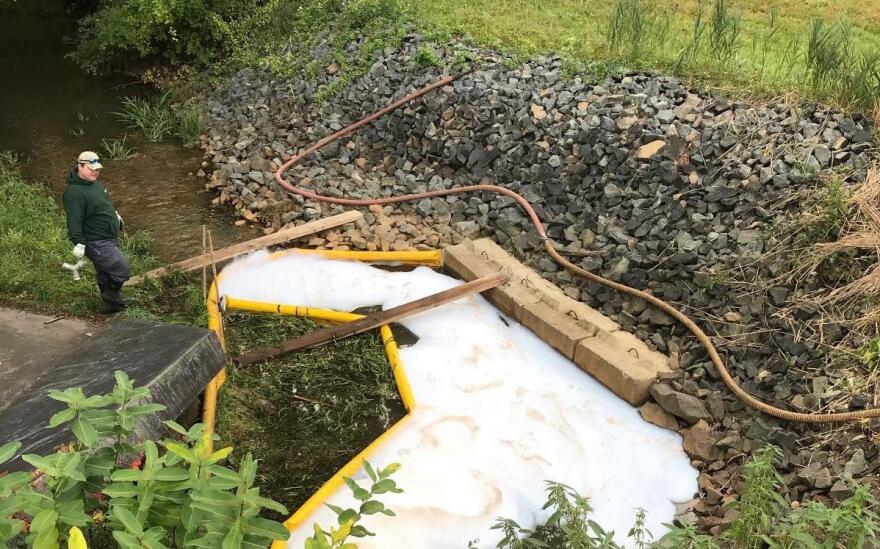The proposed budget adjustments announced earlier this month by Gov. Ned Lamont include the addition of nearly $1 million to address a growing environmental concern: per- and polyfluoroalkyl substances.
Also known as PFAS, this family of chemicals is linked to a variety of bad health effects in people, including liver, immune system and developmental problems. The chemicals are hard to break down and are found in many common products, such as waterproof coatings, nonstick cookware and firefighting foam.
In 2019, two accidents at Bradley International Airport brought PFAS to the widespread attention of lawmakers. In June, an accidental discharge of PFAS-filled firefighting foam at a private aircraft hangar sent tens of thousands of gallons of PFAS-filled water into drains, and eventually into the Farmington River.
Later that year, PFAS-filled firefighting foams were used when a B-17 vintage aircraft crashed at the airport, killing seven people.
Lamont’s budget proposal allocates $120,000 to the Department of Emergency Services and Public Protection to help phase out PFAS-filled firefighting foams.
But for now, these foams will remain onsite at Bradley. That’s because the Federal Aviation Administration mandates that commercial airports use aqueous film forming foam (also known as AFFF) due to its effectiveness at fighting aircraft fuel fires.
But things are changing. The FAA now says commercial airports should no longer use AFFF for training or testing due to health risks. And, in a statement Friday, the agency said a new testing facility is open and actively exploring alternative AFFFs without PFAS.
The agency is working to phase out AFFF at commercial airports by October 2021.
Lamont’s budget proposal also calls for more than $350,000 for the Department of Energy and Environmental Protection and an additional $380,000 for the Department of Public Health.
Lamont’s office said the money would be used to test surface water and sediment, private wells and drinking water supply sources.
The governor’s budget proposals will need legislative approval.





